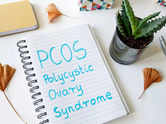01/6How much time does it take for you to get pregnant?

Timing plays a crucial role when it comes to getting pregnant. More so if you have been trying for a long time to no avail. Every second, minute and hour counts. For some, it might just happen in 72 hours, for others, the process may be more complicated and might take longer. There are several questions, doubts and speculations when it comes to conceiving, which is why couples are always wondering how long does it exactly take to get pregnant after sex? To those who have been trying to get pregnant, here's a brief guide to it all!
02/6How long after sex can you get pregnant?


You cannot get pregnant as soon as you're done having sex. Pregnancy is a much longer process and there are many things that come into play. According to experts, it can take up to 6 days after sex for the egg and the sperm to come together in the fallopian tube, which is also called fertilization. For this to happen, the women should be nearing or must have already reached ovulation, the moment when the eggs are released from the ovaries.
After fertilization, the egg or the zygote then moves towards the uterus and can take about 3-4 days to reach it. Once the egg attaches itself to the lining of your uterus (also called implantation) and the appropriate hormones are released, pregnancy occurs.
03/6What experts say about the duration it takes to conceive?


According to the UK's National Health Services (NHS), most couples (about 84 out of every 100) will get pregnant within a year if they have regular sex and don't use contraception. However, some experts believe the majority of the couples can become pregnant within six months.
However, if it has been over a year and you have still not become pregnant, it is best to visit your doctor to rule out any potential conditions that may be hindering the process.
04/6Factors affecting your chance of conceiving


The NHS says that the process of becoming pregnant can vary for each women, depending on certain factors including:
- Age
- General health
- Reproductive health
- How often one has sex
That said, while some women become pregnant almost immediately, others take a lot of time to conceive.
05/6Understand your risk of fertility issues


As discussed, your general and reproductive health also play a role in determining whether you can be pregnant or not.
The NHS lists down certain health conditions that can cause fertility problems. These include:
- Hormonal (endocrine) disorders, such as polycystic ovary syndrome (PCOS) and problems with the thyroid or pituitary glands
- Physical disorders, such as obesity, anorexia nervosa or excessive exercise
- Disorders of the reproductive system, such as infections, blocked fallopian tubes, endometriosis or a low sperm count
06/6How long should you wait to get your pregnancy test?


Home pregnancy tests look for any sign of human chorionic gonadotropin (HCG) in your urine. This substance is produced after the implantation process, but is not detectable until 6 to 14 days after fertilization. But the best and most reliable test result can be achieved on the day of your missed period.





















































closecomments
SIGN IN WITH
GoogleEmail